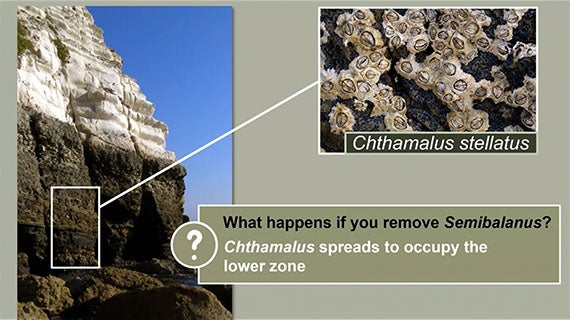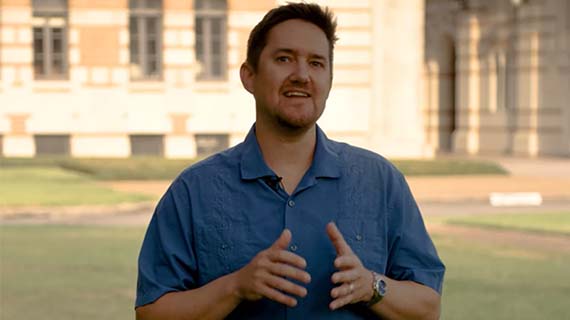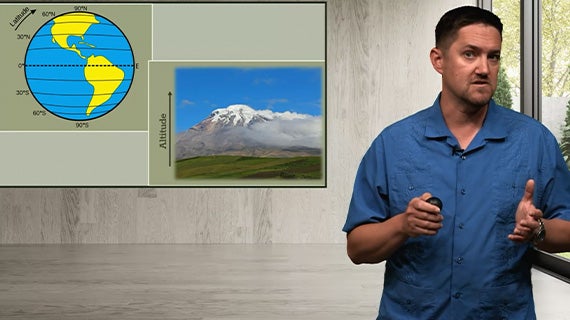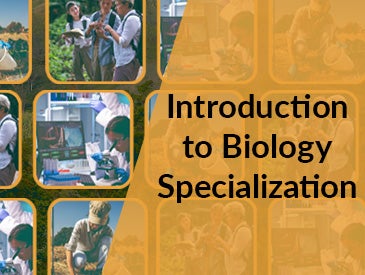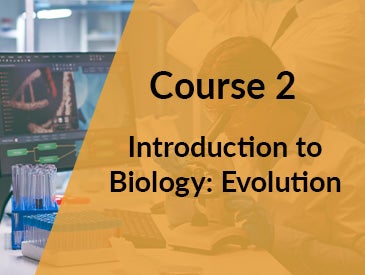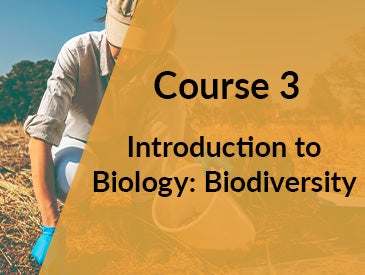Introduction to Biology: Ecology (Course 1)
In Course 1 of Rice University’s online biology classes, we’ll explore how interdependent every living thing is and how people are impacting the natural world.
Like all sciences, ecology isn’t just a list of known facts – it’s also a process. Dr. Solomon loves telling stories, and he has included many stories about how scientists have come to know what we know about ecology through observations and experiments.
Who should attend:
- Anyone interested in biology and the sub-field of Earth’s ecology
- College and high school students who want to experience a university-level or Rice University science course
- High school and middle school teachers who need a high-quality supplementary resource for teaching biology to students
- Global science and nature enthusiasts who want to take a fun, interactive biology course online
You will be able to:
- Define ecology and related concepts like community ecology, population ecology, the biosphere, conservation biology, and other terms
- Understand important concepts from biology’s various fields, including community ecology and ecological niches, species interactions and connections, and more
- Apply ecology concepts and theories to practical, everyday considerations and issues like the conservation of ecosystems, population growth, and climate change
LECTURE SAMPLES
MEET YOUR RICE PROFESSOR

Scott Solomon, Ph.D.
Dr. Scott Solomon is a biologist, professor, and science communicator. He teaches ecology, evolutionary biology, and scientific communication as an Associate Teaching Professor at Rice University in Houston. Dr. Solomon is also a Research Associate at the Smithsonian Institution’s National Museum of Natural History. He has a Ph.D. in Ecology, Evolution, and Behavior from the University of Texas at Austin where his research examined the evolutionary basis of biological diversity in the Amazon Basin.
Dr. Solomon often speaks and writes about science at schools, museums, churches, science cafés, TEDx events, and other venues and has appeared on radio broadcasts on NPR and the BBC World Service and television series such as NASA’s Unexplained Files and Life 2.0. His writing and photography have appeared in publications such as NBC News, Slate, Aeon, Nautilus, and Wired, and his first book, Future Humans: Inside the Science of Our Continuing Evolution was published by Yale University Press and was included on the 2017 Best Book List by the American Association for the Advancement of Science (AAAS).
Explore our related biology courses
CONTACT
Any questions? Please e-mail riceonline@rice.edu
CONTACT
Any questions? Please e-mail riceonline@rice.edu

